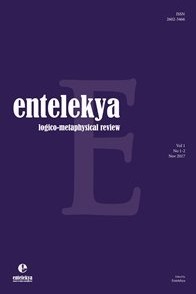Analysis of Monotheistic Discourses in Apologist Irenaeus' Adversus Haereses
Analysis of Monotheistic Discourses in Apologist Irenaeus' Adversus Haereses
The patristic period is the process that starts with the birth of Jesus and continues until the Nicean Council (325). Before the Nicean Council, Jesus, the only God's apostle, has gone instead of Jesus, the son of God. There was no intact Bible in the time of Irenaeus, who was among the apologists who advocated monotheism. This harsh and hard struggle of Irenaeus against those who do not accept the one God undoubtedly provides us with information about the profile of Christ before the Nicean Council. Adversus Haereses consists of five parts. In the first part of the work, he explains his thoughts on gnosticism, in the second part, he criticizes and refutes the gnostic arguments, and explains the Christian doctrine in the other three parts. The first sentence of his book begins with "There is only one God: it cannot be otherwise." In this article, I will analyze the monotheistic words of Irenaeus in Adversus Haereses.
Keywords:
Irenaeus, Adversus Haereses, Against Heresies, monotheism, tawhid, Christianity, Jesus son of God,
___
- Aydın, Mahmut. “Birbirine Tezat İki Farklı İsa Portresi: Paskalya Öncesi İsa versus Paskalya Sonrası İsa.” Milel ve Nihal 4, no. 1 (2007): 143-156.
- Aydın, Mahmut. “Tarihsel İsa Araştırmaları ve Onların Bulguları Üzerine Bazı Mülahazalar.” İslam Araştırmaları Dergisi 5 (2001), 1-41.
- Başdemir, Hasan Yücel. “Thomas Aquinas’ta Tanrı Tasavvuru.” Gazi Üniversitesi Çorum İlahiyat Fakültesi Dergisi 3 (2003): 103-122.
- Borg, Marcus J. “Does the Historical Jesus Matter?” HTS Theologiese Studies 51, no. 4 (1995): 942-961.
- Bucaille, Maurice. Tevrat, İnciller, Kur’an-ı Kerim ve Bilim. Tr. trans. Suat Yıldırım. İzmir: Işık Yayınları, 2005.
- Buzzard, Anthony F. and Hunting, Charles F. The Doctrine of the Trinity: Christianity's Self-Inflicted Wound. Oxford: International Scholars Publications, 1998.
- Demirci, Kürşat. “Hıristiyanlık,” Türkiye Diyanet Vakfi İslâm Ansiklopedisi, vol. 17. Ankara: Türkiye Diyanet Vakfı Yayınları, 1998.
- Gilson, Étienne. Ortaçağda Felsefe. Tr. trans. Ayşe Meral. İstanbul: Kabalcı Yayınevi, 2003.
- Gürkan, Salime Leyla. “Pavlus: Hıristiyanlığın Mimarı, Şinasi Gündüz.” İslam Araştırmaları Dergisi 8 (2002), 123-124.
- Hatch, Sidney and Buzzard, Anthony. “Who is God? Bible Discussion,” https://www.21stcr.org/one-god-over-all-videos/who-is-god.
- Hoover, Jon. “İslâmî Monoteizm ve Teslîs.” Tr. trans. Zeynep Yücedoğru. Oksident 1, no. 1 (2019): 117-143.
- İnanlar, Mahmet Zafer. Din-Mitos İlişkisi: Hıristiyanlık Örneği. PhD Thesis. Ankara: Ankara Üniversitesi, 2015.
- Korlaelçi, Murtaza and Türer, Celal. Felsefe Tarihi. Ankara: Ankara Üniversitesi Uzaktan Eğitim Yayınları, 2012.
- Nathan, Nicholas M. L. “Yahudi Monoteizmi ve Hristiyan Tanrısı.” Tr. trans. Mehmet Ata Az. Şırnak Üniversitesi İlahiyat Fakültesi Dergisi 4 (2011): 177-193.
- Özler, Mevlüt, “Tevhid.” Türkiye Diyanet Vakfı İslâm Ansiklopedisi, cilt 41. Ankara: Türkiye Diyanet Vakfı Yayınları, 2012: 18-20.
- Schaff, Philip. Ante-Nicene Fathers 1: The Apostolic Fathers with Justin Martyr and Irenaeus. Grand Rapids, MI: Christian Classics Ethereal Library, 1885.
- Taşpınar, İsmail. “I. İznik Konsili (325) ve İslâm Kaynaklarındaki Yeri.” Marmara Üniversitesi İlâhiyat Fakültesi Dergisi 26 (2004): 23-44.
- Tunçbilek, Hasan Hüseyin. “İslâm'ın Dışındaki Monoteist Düşünce ve İnançlarda Ulûhiyet Anlayışı.” Marife 3, no. 1 (2003), 119-140.
- Türer, Celal. “Tevhid ve Bir İnsanlık,” Hz. Peygamber: Tevhid ve Vahdet. Ankara: Diyanet İşleri Başkanlığı Yayınları, 2016.
- Yıldırım, Suat. Mevcut Kaynaklara Göre Hıristiyanlık. İzmir: Işık Yayınları, 2005.
- “Tawhid.” The Oxford Dictionary of Islam. http://www.oxfordislamicstudies.com/article/opr/t125/e2356.
- Başlangıç: 2017
- Yayıncı: İlyas ALTUNER
